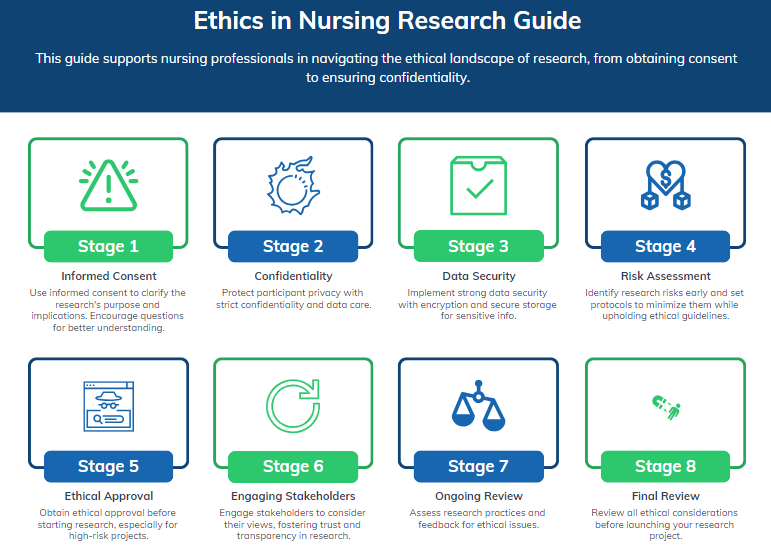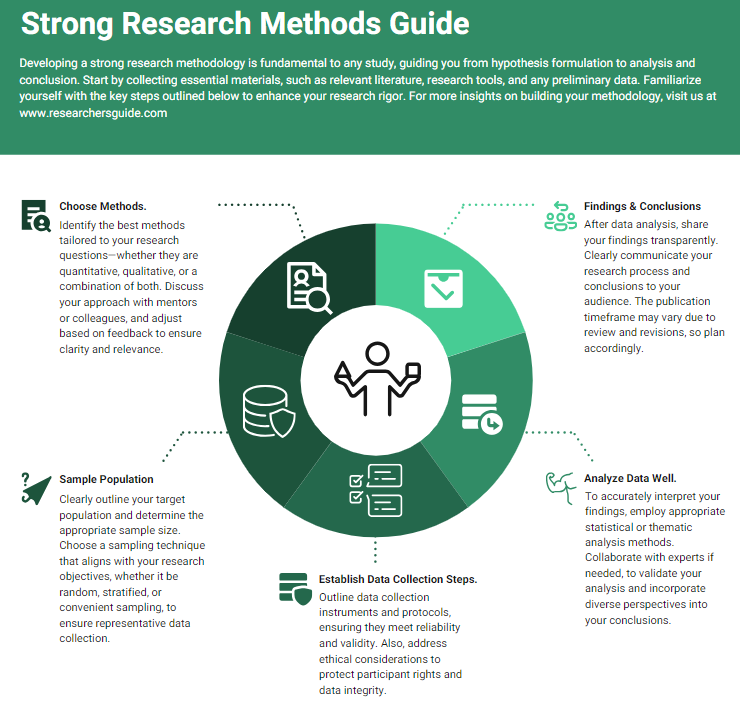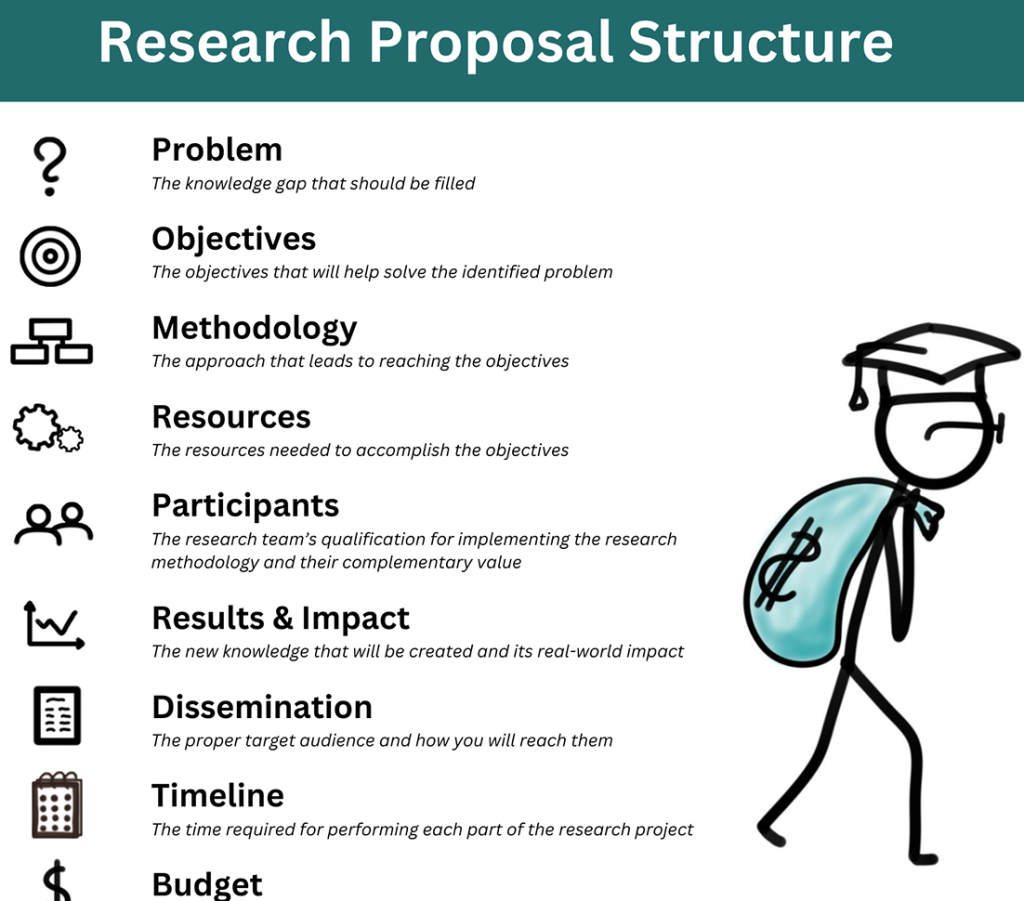
Table of Contents
Nursing research plays a pivotal role in advancing the science of care, improving patient outcomes, and shaping the future of the profession. However, securing funding and support for your research requires a well-structured and compelling proposal for nursing research.
This guide provides a comprehensive overview of the key elements necessary to craft a convincing nursing research proposal that resonates with reviewers and secures the resources needs for success.
Steps to Writing a Compelling Proposal for Nursing Research
1. Understanding the Fundamentals: Defining Your Research Scope
Before embarking on the writing process, it is crucial to clearly define the scope and purpose of your proposal for nursing research. Answer these fundamental questions to establish a strong foundation:
- What is the research problem you aim to address? Identify a gap in knowledge or a pressing issue within the nursing field.
- What is the specific research question you aim to answer? Formulate a clear and focused question that guides your research direction.
- What is the significance of your proposed research? Explain the potential impact of your findings on patient care, nursing practice, and the broader healthcare system.
- What is your proposed methodology? Clearly describe the research design, data collection methods, and analysis techniques you will employ.
- What are the ethical considerations of your research? Address potential risks to participants and ensure your research adheres to ethical guidelines.
2. Building a Strong Foundation: The Essentials of a Convincing Proposal
A compelling proposal for nursing research is built upon a solid foundation of key components. These include:
- Title: A concise and descriptive title that accurately reflects the focus of your research.
- Abstract: A brief summary of your proposal for nursing research that highlights the research problem, objectives, methods, and expected outcomes.
- Introduction: A comprehensive overview of the research topic, outlining the current state of knowledge, relevant literature, and the rationale for your proposed study.
- Literature Review: A critical analysis of existing research relevant to your topic, identifying gaps in knowledge and highlighting the significance of your proposed study.
- Research Questions/Hypotheses: Clearly stated research questions or hypotheses that guide your investigation and provide a framework for data analysis.
- Methodology: A detailed description of your research design, including the study population, data collection methods (e.g., surveys, interviews, observations), and data analysis techniques (e.g., statistical analysis, qualitative coding).
- Timeline: A realistic timeline outlining the key milestones and activities involved in conducting your research.
- Budget: A detailed budget breakdown outlining the costs associated with conducting your research, including personnel, equipment, supplies, and travel.
- Dissemination Plan: A strategy for disseminating your research findings to relevant audiences, such as scientific publications, conferences, and community stakeholders.
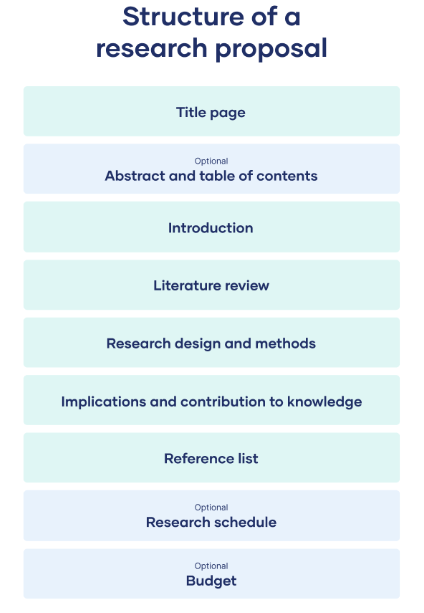
3. Weaving a Narrative: Engaging Your Audience
While the content is crucial, the presentation of your proposal for nursing research is equally important. To captivate your audience and ensure your message is clear and impactful, consider these strategies:
- Use clear and concise language. Avoid jargon and technical terms that may be unfamiliar to your audience.
- Employ strong storytelling elements. Connect your research to real-life experiences, personal anecdotes, and the impact on patients and healthcare professionals.
- Use compelling visuals. Incorporate graphs, charts, tables, and images to enhance readability and illustrate key concepts.
- Highlight the novelty and significance of your work. Explain what sets your research apart and its potential contribution to the field.
- Maintain a professional tone and style. Pay attention to grammar, punctuation, and formatting to ensure your proposal is polished and presentable.
4. Addressing Common Challenges: Refine and Improve Your Proposal
Crafting a compelling proposal for nursing research is a multifaceted process, and you may encounter challenges along the way. Address these common roadblocks to strengthen your proposal:
- Lack of clarity in your research question. Ensure your research question is specific, measurable, achievable, relevant, and time-bound (SMART).
- Limited evidence to support your rationale. Conduct thorough literature searches to identify relevant studies and strengthen your argument.
- Weak methodology. Choose a research design that aligns with your research question and ensures valid and reliable data collection.
- Unrealistic timeline and budget. Develop a realistic timeline and budget based on the complexity of your research.
- Inadequate dissemination plan. Outline clear strategies for sharing your research findings with a wider audience.
5. Seeking Feedback and Refining Your Proposal
Feedback is essential for improving the quality of your proposal for nursing research. Before submitting your proposal, consider these strategies:
- Share your proposal with mentors and colleagues. Seek their expert opinions and constructive criticism to identify areas for improvement.
- Attend research proposal writing workshops. These workshops offer valuable insights and guidance from experienced researchers.
- Seek feedback from potential reviewers. If possible, share your proposal with reviewers from the funding agency or journal you are targeting.
6. Navigating the Funding Landscape: Securing Resources for Your Research
Successfully securing funding for your proposal for nursing research requires a thorough understanding of the funding landscape. Consider these steps:
- Identify relevant funding sources. Research funding opportunities from government agencies, private foundations, professional organizations, and universities.
- Thoroughly review funding guidelines. Pay close attention to eligibility criteria, submission deadlines, and specific requirements for each funding source.
- Tailor your proposal to the specific funding opportunity. Address the priorities and interests of the funding agency.
- Highlight the potential impact of your research. Emphasize the practical implications and potential benefits for patients, healthcare professionals, and the healthcare system.
7. Navigating Ethical Considerations: Protecting Participants and Ensuring Integrity
All proposals for nursing research must adhere to ethical guidelines and principles. Consider these important points:
- Obtain informed consent from participants. Clearly explain the nature of the research, potential risks and benefits, and participants’ right to withdraw from the study.
- Protect participant confidentiality. Ensure that all data is anonymized and stored securely.
- Address potential conflicts of interest. Disclose any potential conflicts of interest and take steps to minimize bias.
- Ensure the ethical treatment of all participants. Respect participants’ autonomy, privacy, and dignity throughout the research process.

8. Refining Your Proposal: Tips for Success
- Start early. Allow ample time for research, writing, and revision.
- Focus on clarity and brevity. Use clear, concise language and avoid unnecessary jargon.
- Highlight the significance and novelty of your work. Explain why your research is important and what unique contribution it will make.
- Tailor your proposal to the specific funding opportunity. Address the priorities and interests of the funding agency.
- Seek feedback from experts. Get input from mentors, colleagues, and potential reviewers.
Examples of Compelling Proposals for Nursing Research
To gain inspiration and understand the structure of a compelling proposal for nursing research, explore examples from published articles and funded studies.
- Example 1: A Study on the Impact of Mindfulness-Based Interventions on Pain Management in Chronic Pain Patients. This proposal could focus on the effectiveness of mindfulness-based interventions in reducing pain intensity, improving quality of life, and decreasing reliance on pain medication.
- Example 2: An Investigation of the Relationship Between Nurse-Patient Communication and Patient Satisfaction. This proposal could examine the impact of different communication styles on patient satisfaction, adherence to treatment plans, and overall healthcare experience.
- Example 3: A Pilot Study on the Use of Virtual Reality Technology to Reduce Anxiety and Improve Outcomes in Pediatric Patients Undergoing Surgery. This proposal could explore the effectiveness of virtual reality technology in managing anxiety, reducing the need for sedation, and promoting faster recovery times.
Avoiding Common Pitfalls in Nursing Research Proposals
A successful proposal for nursing research is the cornerstone of any impactful study. It serves as a roadmap, outlining your research question, methodology, and anticipated outcomes. However, the journey to crafting a compelling proposal is often riddled with common pitfalls that can derail your project before it even begins. Recognizing and avoiding these pitfalls is crucial for ensuring your proposal stands out and secures the necessary funding and support.
1. Lack of Clear Focus: A Vague Research Question is a Recipe for Disaster
The foundation of any strong proposal for nursing research is a well-defined research question. A vague or overly broad question will lead to a scattered and unfocused study. Instead, aim for a specific, measurable, achievable, relevant, and time-bound (SMART) question that guides your research direction.
Fix: Before embarking on your proposal, spend time refining your research question. Consider the current body of knowledge, identify gaps, and formulate a focused question that addresses a specific aspect of nursing practice.
2. Inadequate Literature Review: Building a Solid Foundation for Your Research
A thorough literature review is essential for demonstrating your understanding of the existing research landscape and highlighting the need for your study. A weak or incomplete review will raise concerns about your research’s originality and relevance.
Fix: Conduct a comprehensive review, encompassing both primary and secondary sources. Analyze existing findings, identify discrepancies, and establish a strong argument for your proposed research. This review will provide the foundation for your proposal for nursing research.
3. Methodology Mismatch: Aligning Methods with Your Research Question
Choosing the appropriate methodology is paramount for answering your research question. A mismatch between methodology and research question can undermine the validity and credibility of your study.
Fix: Carefully select a methodology that aligns with your research question and objectives. Clearly explain the methods you will employ, including data collection techniques, sample size, and data analysis methods. Ensure your methodology is sound and defensible.
4. Unrealistic Timeline: Setting Realistic Expectations for Your Research
A proposal for nursing research must present a realistic timeline for completing your study. Overestimating your capabilities or underestimating the complexity of the research can result in delays and missed deadlines.
Fix: Break down the research process into manageable tasks and allocate realistic timeframes for each stage. Consider potential delays and build in contingencies. A detailed timeline will demonstrate your understanding of the research process and enhance the credibility of your proposal.
5. Inadequate Budget: Securing the Resources You Need
A well-articulated budget is crucial for obtaining funding for your proposal for nursing research. Underestimating costs can hinder your ability to execute the study effectively.
Fix: Develop a detailed budget that outlines all necessary expenses, including personnel, equipment, materials, and data analysis. Justify each expense and provide supporting documentation.
6. Weak Writing and Presentation: Communicating Your Research Clearly and Effectively
The effectiveness of your proposal for nursing research depends heavily on the clarity and persuasiveness of your writing. Poorly written proposals can be confusing and may fail to capture the attention of reviewers.
Fix: Focus on clear and concise language, using appropriate technical terminology. Structure your proposal logically, with a compelling introduction, detailed methodology, and comprehensive discussion of potential impact. Proofread carefully to ensure accuracy and clarity.
7. Lack of Collaboration: Leveraging the Expertise of Others
While valuable, individual research endeavors often benefit from collaboration. Seeking input from experts in your field can enhance the rigor and impact of your proposal for nursing research.
Fix: Reach out to colleagues, mentors, or experts in your field to provide feedback on your proposal. Collaborating with others can broaden your perspective, strengthen your methodology, and increase the likelihood of successful funding.
By diligently addressing these common pitfalls and adhering to best practices, you can craft a strong proposal for nursing research that stands out from the competition. This will pave the way for a successful study that makes a meaningful contribution to the field of nursing.
Frequently Asked Questions about Nursing Research Proposals
Embarking on a nursing research project is a journey that requires meticulous planning and a solid foundation. A crucial first step is crafting a compelling proposal for nursing research, a document that outlines your research objectives, methodology, and anticipated outcomes. While writing a proposal can seem daunting, understanding common questions and concerns can streamline the process.
1. What is the Purpose of a Proposal for Nursing Research?
The proposal for nursing research serves as a blueprint for your project. It’s your opportunity to showcase your research question, justify its significance, and demonstrate your understanding of the existing literature and potential methodologies. A well-crafted proposal acts as a roadmap, ensuring a clear direction for your research and securing necessary funding or institutional approval.
2. How Do I Choose a Research Topic?
Choosing a relevant and impactful research topic is paramount. Consider your interests, current clinical practice gaps, or emerging trends in nursing. Look for areas where existing research is limited or requires further exploration. Consulting with mentors, colleagues, or reviewing recent publications can spark inspiration and identify valuable research opportunities.
3. What are the Key Components of a Proposal for Nursing Research?
A typical proposal for nursing research encompasses these key elements:
- Introduction: This section introduces the research topic, its relevance, and the research question.
- Literature Review: It summarizes the existing research related to the topic, highlighting gaps and justifying the need for your study.
- Methodology: This section details the research design, population, sampling procedures, data collection methods, and data analysis techniques.
- Timeline and Budget: A clear timeline for project completion and a detailed budget for expenses are crucial.
- Dissemination Plan: Describe how the findings will be shared, including potential publications, conferences, or presentations.
- Ethical Considerations: Address any potential risks to participants and outline measures to protect their privacy and confidentiality.
4. How Do I Ensure the Ethical Approval of My Proposal for Nursing Research?
Ethical review is mandatory for all proposals for nursing research involving human subjects. This process ensures that the research is conducted responsibly and respects the rights and well-being of participants.
- Informed Consent: Participants must fully understand the research purpose, procedures, and potential risks before providing informed consent.
- Confidentiality: All data collected should be anonymized and securely stored to protect participant privacy.
- Beneficence: The research should aim to benefit participants or the broader nursing community.
- Justice: Participants should be selected fairly and equitably, avoiding any potential bias.
5. What are the Common Mistakes to Avoid in a Proposal for Nursing Research?
Several pitfalls can derail a proposal for nursing research:
- Weak Research Question: An ill-defined or unclear research question can lead to an unfocused study.
- Insufficient Literature Review: A superficial review fails to establish the significance of your research.
- Unrealistic Methodology: A poorly designed methodology can compromise the validity and reliability of your findings.
- Incomplete Timeline or Budget: Overly optimistic timelines or unrealistic budget projections are problematic.
- Lack of Ethical Consideration: Neglecting ethical considerations can result in project rejection and potential harm to participants.
6. What Resources Are Available to Support Writing a Proposal for Nursing Research?
Numerous resources can assist you in crafting a compelling proposal for nursing research:
- Mentors and Faculty: Seek guidance from experienced researchers or faculty members.
- Nursing Research Journals: Read articles on similar research topics for inspiration and methodological examples.
- Professional Organizations: Many nursing organizations offer resources, workshops, and mentorship programs for research.
- Online Resources: Websites like the National Institutes of Health (NIH) provide valuable information on research methodology and grant proposals.
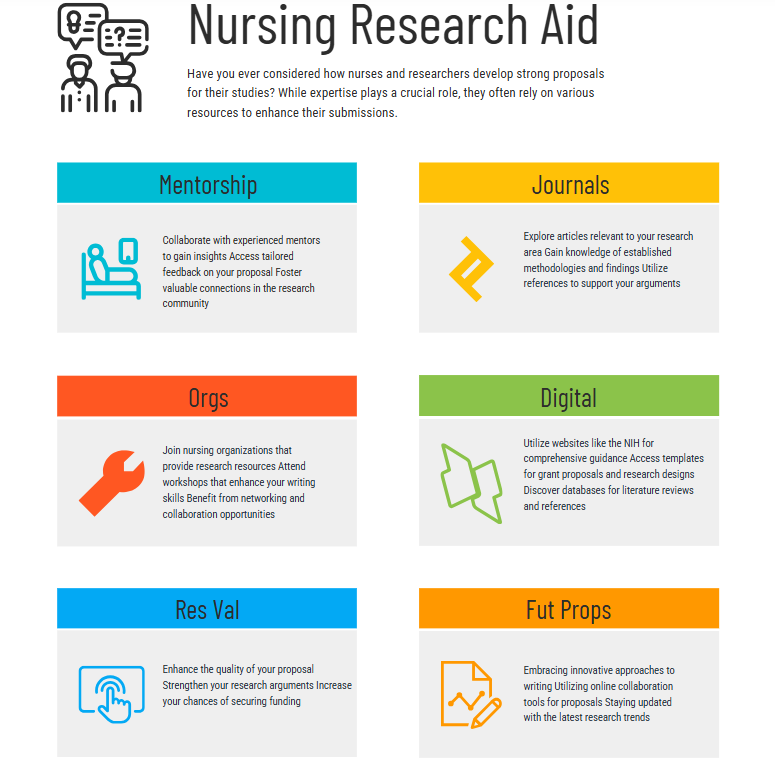
Crafting a strong proposal for nursing research is a crucial step towards conducting impactful research. By understanding the purpose, components, and common pitfalls, you can create a clear and convincing document that lays the foundation for your research journey. Remember to leverage available resources and seek guidance to ensure a successful proposal that earns the necessary approvals and sets the stage for a meaningful contribution to the nursing field.
The Bottom Line: A Call to Action
A compelling proposal for nursing research is the cornerstone of advancing the science of care and making a meaningful impact on patients’ lives. By carefully defining your research scope, building a strong foundation, engaging your audience, and addressing common challenges, you can craft a proposal that secures the resources you need to conduct impactful research. Embrace the challenges, seek feedback, and strive for excellence in your pursuit of knowledge and innovation within the nursing profession.
Get Professional Nursing Research Proposal Writing Service
At Nursing Papers, we offer professional writing services for nursing research proposals and papers. We can assist you to craft authentic and impactful nursing papers for academic success. Besides proposal writing, we also do proofreading, editing, formatting and plagiarism removal. Get in touch with us today for professional help with nursing research papers, case studies, essays and dissertations.



